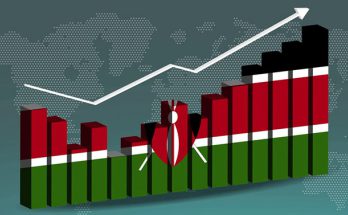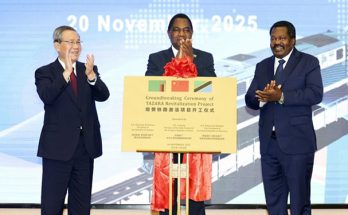 The European Union (EU) has begun collaboration with Nigerian authorities to improve the quality of some exports from the country, which had been banned in Europe due to the products’ deficiency in meeting European specifications.
The European Union (EU) has begun collaboration with Nigerian authorities to improve the quality of some exports from the country, which had been banned in Europe due to the products’ deficiency in meeting European specifications.
The banned export items included beans and some fish products.
The Head of Cooperation, EU Delegation to Nigeria & ECOWAS, Kurt Cornelis, who made the disclosure in Abuja on the sidelines of the enlarged regional steering committee meetings, West Africa Quality System Project (WAQSP), said although the exports were desirable, the EU needed to protect its consumers.
“We are working with the Nigerian authorities in trying to improve the quality of exports that are concerned, i.e. beans and some fish products.
“But we of course, need to protect our consumers in the European market and we have our standards. Unfortunately for some Nigerian exporters, these standards have to be met. So, that means that they have to upgrade the quality of the Nigerian products.
“There are some investments to be made and I hope that this will lead to better access to the European market in the next months or years,” Cornelis said.
He stated that the EU was quite pleased with what had been achieved so far in West Africa in terms of quality standards, which it has actively supported for close to two decades.
Cornelis said: “We will definitely continue supporting the West Africa quality infrastructure. We are in the process of approving a new important programmes aimed at developing some value chains in the West African states and the quality infrastructure will definitely be part of that.
He added: “Another big programme that we are developing is trade facilitation to ensure that exports within the west Africa system and also to Europe will be smoother and that products can meet the quality that are required by our consumers so that we can have to develop better, the West Africa export and also the economy.”
The EU Head of Delegation stated that there was the desirability for member states of the Economic Community of West African States (ECOWAS) to select a few value chains which they can develop processing industries.
“We are in the process of selecting together the value chains and we will provide supports in our next programmes to improve competitiveness so that the value chains can be better developed and be supported. And in the end, we hope that this will lead to higher exportation, specific routes to other African countries,” Cornelis said.
Also in an interview, the ECOWAS Commissioner for Industry & Private Sector Promotion, Mr. Kalilou thanked the EU for its vast support over the years, adding that the sub-regional body had been working with all the ECOWAS member states and Mauritania had supported each country to elaborate its own national quality policy and to start implementing same.
“Our target is to have a regional quality infrastructure strong enough to support the economy, enable industrialisation and protect consumers and we have made a lot of progress but there are many challenges. These challenges are about to make effective the function of regional structure.
“We will set up a regional quality agency that will support all the member states that will support all the regional
“We also want to encourage and sensitise consumers to request for better, higher quality when buying products from the market. It will be the biggest engine for upgrading quality system at the regional level,” he said.
WAQSP objectives include establishing suitable quality infrastructure (QI) and national quality policies, for consumer health and environmental protection, the improvement of private sector competitiveness and trade facilitation.



